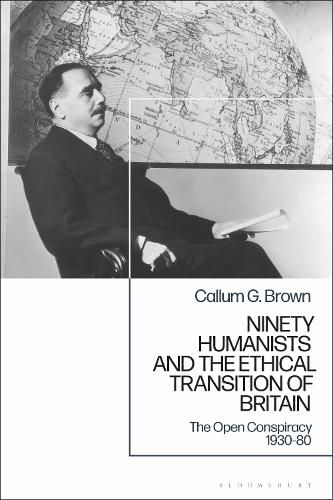Readings Newsletter
Become a Readings Member to make your shopping experience even easier.
Sign in or sign up for free!
You’re not far away from qualifying for FREE standard shipping within Australia
You’ve qualified for FREE standard shipping within Australia
The cart is loading…






This book re-writes the origins of the progressive 1960s. It argues that 94 leading British intellectuals, nearly all humanists, were inspired by H.G. Wells to amend the ethical laws of the nation under a banner of "The Open Conspiracy".
Using a wealth of correspondence and other materials covering 1930 to 1980, Callum Brown identifies a new motivation behind ethical change. Whilst established narratives attribute most changes to youth revolt, the sex revolution and feminism, he shows how a humanist-led network realigned much of the British state to the principles of humanitarianism, the autonomy of the individual, and internationalism.
The author examines the network's campaigns and the work of individual intellectuals. High profile members come into focus, including Bertrand Russell, Julian Huxley, and Barbara Wootton. Highlighting the amazing breadth of the group's work, the book reveals 11 main areas of ethical ambition, ranging from abolishing world hunger, hanging, child beating and women's entrapment in abusive marriages, to nuclear disarmament and the promotion of federal world government. The result is a compelling new perspective on modern British history, and the key social and moral reforms of the past century.
$9.00 standard shipping within Australia
FREE standard shipping within Australia for orders over $100.00
Express & International shipping calculated at checkout
Stock availability can be subject to change without notice. We recommend calling the shop or contacting our online team to check availability of low stock items. Please see our Shopping Online page for more details.
This book re-writes the origins of the progressive 1960s. It argues that 94 leading British intellectuals, nearly all humanists, were inspired by H.G. Wells to amend the ethical laws of the nation under a banner of "The Open Conspiracy".
Using a wealth of correspondence and other materials covering 1930 to 1980, Callum Brown identifies a new motivation behind ethical change. Whilst established narratives attribute most changes to youth revolt, the sex revolution and feminism, he shows how a humanist-led network realigned much of the British state to the principles of humanitarianism, the autonomy of the individual, and internationalism.
The author examines the network's campaigns and the work of individual intellectuals. High profile members come into focus, including Bertrand Russell, Julian Huxley, and Barbara Wootton. Highlighting the amazing breadth of the group's work, the book reveals 11 main areas of ethical ambition, ranging from abolishing world hunger, hanging, child beating and women's entrapment in abusive marriages, to nuclear disarmament and the promotion of federal world government. The result is a compelling new perspective on modern British history, and the key social and moral reforms of the past century.